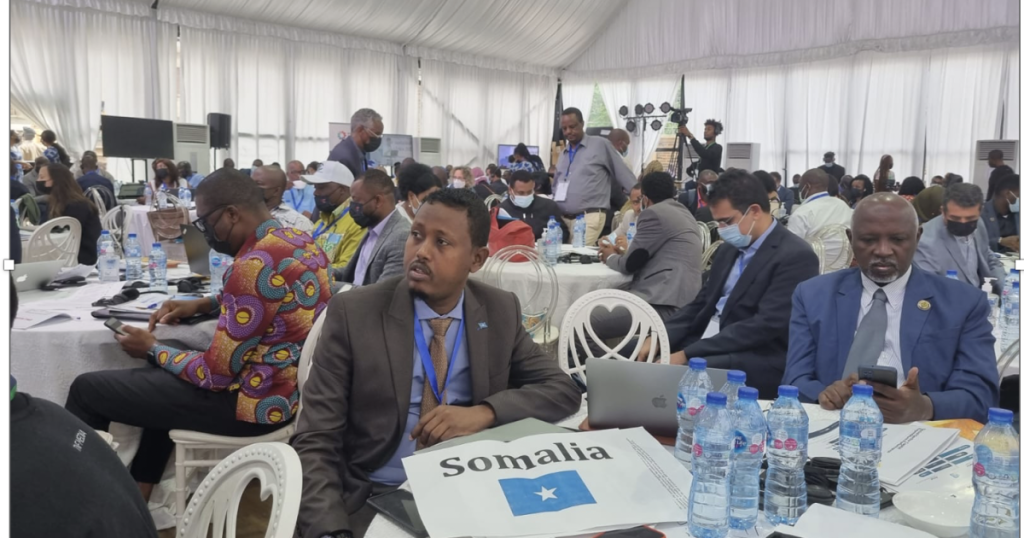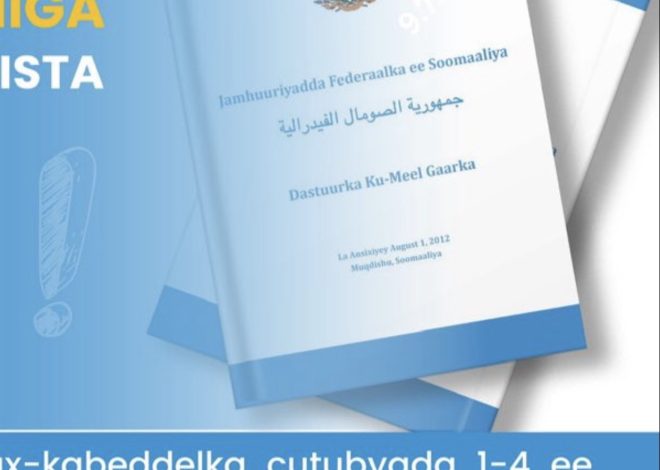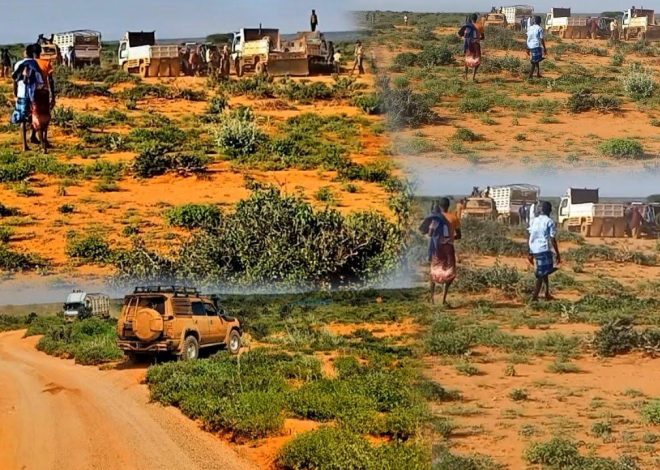Somalia among highly improved countries in open budget and transparency- According to Open Budget Survey
The recently concluded conference on Integrated National Financing Frameworks (INFF) and Open Budgets for Sustainable Development in Africa praised Somalia’s progress in financial transparency and the open budget process. In late September, a survey on Open Budget was unveiled at the meeting in Nigeria’s capital, Abuja.

Somalia joined the Open Budget Survey (OBS) initiative in 2016 and has completed three rounds of (OBS), which are conducted every two years. Somalia’s transparency score in the 2021 round was 20 out of 100, a significant improvement over its previous performance. It was ranked next to Tanzania.
“We are pleased to have been reviewed through this open process.” Our commitment to transparency and public participation in budget and financial processes is clear. “We are determined to provide value and accountability to our people,” said Yussuf Mohamed Adan, Somalia’s State Minister for Labour and Social Affairs, who attended the conference.
“We are excited to use these tools to improve our transparency, oversight, and accountability levels, as well as to help our external partners see value for their investments,” Mr Adan added Somalia is undergoing debt relief under the Highly Indebted Poor Countries (HIPC) initiative. Through the proposed industry of an integrated national financing framework (INFF) and an independent peer review open budget process, experts believe the country can eventually rely on its resources rather than Oversee Development Assistance (ODA).

“The Integrated Financing Framework (INFF) and Open Budget Initiative are unique in that they focus on introducing new financial instruments aimed at financing sustainable development goals in conjunction with national goals and priorities,” said Dr Mohamed Osman, CEO of Sadar Institute, a local host for the Open Budget Initiative in Somalia, and Country Representative for the United Nations University of Peace in Somalia.
“The goal is for developing countries to move beyond reliance on traditional ODA and finance their own Sustainable Development goals in the future,” Dr Mohamed added.
During his opening speech, Nigerian President Mohammadu Buhari emphasized the importance of integrating national budget systems to reduce reliance on foreign aid.

While participating virtually, representatives from the Ministry of Finance developed a NIFF short-term action plan focusing on financing reform, establishing a new focus for an open budget, and advancing public financial management reform with the Ministry of Labour and Social Affairs and the Sadar Institute.
“Somalia will benefit greatly from the results of this survey. It will improve our budgeting process and instill trust in our employees and external partners “Said Mohamed Tahlil Ahmed, the Ministry of Finance’s Head of Budget and Reporting.
“It will open up more oppor Financingt unities for us as we try to overcome the challenges brought on by decades of civil war,” Mr Tahlil added.

Representatives from 54 African countries, UN Agencies, Civil Society Organizations, and other development partners attended the four-day Abuja conference.
As the Covid-19 pandemic dealt shocks to both the sustainable development outlook and the means of financing recovery and medium- to long-term progress in 2020 and 2021, interest in integrated national fina ncing grew.

The African continent has led the way in terms of the number of countries willing to participate in the Integrated National Financing Framework (INFF) initiative. More than 40 countries use the approach in Sub-Saharan Africa (SSA).
The term “integrated national financing frameworks,” or INFFs for short, was introduced in the Addis Ababa Action Agenda for the very first time. Countries requested INFFs to obtain assistance in implementing their national strategies for sustainable development. During the 2019 United Nations General Assembly, sixteen countries reaffirmed their commitment to being this approach’s pioneers.
INFFs serve as a bridge between the policies that mobilize and regulate public and private funding. They assist governments in aligning and enhancing the contribution of financial policies to national development plans. They facilitate greater collaboration between public and private actors and strengthen the connections between various financing policy areas.
In conclusion, the State Minister of Labor and Social Affairs lauded the efforts of the event’s organizers and Nigeria, the host nation. The State Minister reaffirmed that Somalia would adopt the INFF strategy, as the Ministry of Finance already had plans to promote this initiative. The State Minister emphasized that his ministry will work with the Ministry of Finance to address the public participation score, which requires significant public participation. “We will work with our Ministry of Finance to include public participation in the budget preparation guidelines and throughout the budget process,” stated Yusuf Mohamed, St for State Minister labour and social affairs.
As the conference came to a successful conclusion, countries pledged to advance transparency in the budgeting process and to consider adopting a NIFF. The Somalia delegation, led by State Minister Yusuf Mohamed Adan, participated in a series of side meetings with other countries in the region, including Sudan, Ethiopia, Eritrea, Uganda, and South Sudan, to discuss enhancing budget transparency and ensuring public participation.



